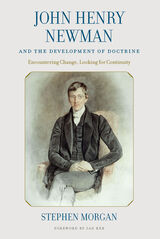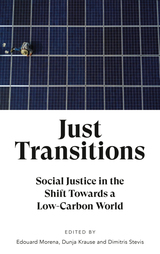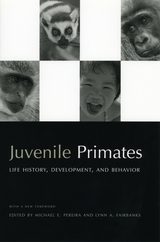569 books about Development and 5
start with J
569 books about Development and 5
569 books about Development
5 start with J start with J
5 start with J start with J

John Henry Newman and the Development of Doctrine
Encountering Change, Looking for Continuity
Stephen Morgan
Catholic University of America Press, 2022
John Henry Newman and the Development of Doctrine provides an analysis of the attempts by John Henry Newman to account for the historical reality of doctrinal change within Christianity in the light of his lasting conviction that the idea of Christianity is fixed by reference to the dogmatic content of the deposit of faith. It argues that Newman proposed a series of hypotheses to account for the apparent contradiction between change and continuity, that this series begins much earlier than is generally recognized and that the final hypothesis he was to propose, contained in An Essay on the Development of Christian Doctrine, provides a methodology of lasting theological value and contemporary relevance.
Stephen Morgan establishes the centrality of the problem of change and continuity in theology, to Newman's theological work as an Anglican, its part in his conversion to Catholicism and its contemporary relevance to Catholic theology. It also surveys the major secondary literature relating to the question, with particular reference to those works published within the last fifty years. Additionally, Morgan considers the legacy of the Essay as a tool in Newman’s theology and in the work of later theologians, finally suggesting that it may offer a useful methodological contribution to the contemporary Catholic debate about hermeneutical approaches to the Second Vatican Council and post-conciliar developments in doctrine.
[more]

Jua Kali Kenya
Change and Development in an Informal Economy, 1970–1995
Kenneth King
Ohio University Press, 1996
Kenya was where the term “informal sector” was first used in 1971. During the 1980s the term “jua kali” — in Swahili “hot sun” — came to be used of the informal sector artisans, such as carworkers and metalworkers, who were working under the hot sun because of a lack of premises. Gradually it came to refer to anybody in self-employment. And in 1988 the government set up the Jua Kali Development Programme.
In this remarkable book Kenneth King brings the subject alive through the photographs and life histories of jua kali people. He has also revisited, twenty years later, many of the artisans whom he interviewed exhaustively in the period from 1972 to 1974 and about whom he wrote in The African Artisan, one of the first full-length studies to be published on the informal sector.
For donors, NGOs, and national governments, the book offers many relevant examples, and some cautions, about what has been achieved by ordinary Kenyans, mostly without government support. It will prove equally valuable for students and teachers of development policy, technology policy, and education and training policies not least because of its superb bibliography of over 700 entries related to small enterprise development.
In this remarkable book Kenneth King brings the subject alive through the photographs and life histories of jua kali people. He has also revisited, twenty years later, many of the artisans whom he interviewed exhaustively in the period from 1972 to 1974 and about whom he wrote in The African Artisan, one of the first full-length studies to be published on the informal sector.
For donors, NGOs, and national governments, the book offers many relevant examples, and some cautions, about what has been achieved by ordinary Kenyans, mostly without government support. It will prove equally valuable for students and teachers of development policy, technology policy, and education and training policies not least because of its superb bibliography of over 700 entries related to small enterprise development.
[more]

Just Transitions
Social Justice in the Shift Towards a Low-Carbon World
Edouard Morena
Pluto Press, 2022
In the field of 'climate change', no terrain goes uncontested. The terminological tug of war between activists and corporations, scientists and governments, has seen radical notions of 'sustainability' emptied of urgency and subordinated to the interests of capital. 'Just Transition' is the latest such battleground, and the conceptual keystone of the post-COP21 climate policy world. But what does it really mean?
Just Transition emerged as a framework developed within the trade union movement to encompass a range of social interventions needed to secure workers' and frontline communities' jobs and livelihoods as economies shift to sustainable production. Just Transitions draws on a range of perspectives from the global North and South to interrogate the overlaps, synergies and tensions between various understandings of the Just Transition approach. As the concept is entering the mainstream, has it lost its radical edge, and if so, can it be recovered?
Written by academics and activists from around the globe, this unique edited collection is the first book entirely devoted to Just Transition.
Just Transition emerged as a framework developed within the trade union movement to encompass a range of social interventions needed to secure workers' and frontline communities' jobs and livelihoods as economies shift to sustainable production. Just Transitions draws on a range of perspectives from the global North and South to interrogate the overlaps, synergies and tensions between various understandings of the Just Transition approach. As the concept is entering the mainstream, has it lost its radical edge, and if so, can it be recovered?
Written by academics and activists from around the globe, this unique edited collection is the first book entirely devoted to Just Transition.
[more]

Just Transitions
Social Justice in the Shift Towards a Low-Carbon World
Edouard Morena
Pluto Press, 2019
In the field of 'climate change', no terrain goes uncontested. The terminological tug of war between activists and corporations, scientists and governments, has seen radical notions of 'sustainability' emptied of urgency and subordinated to the interests of capital. 'Just Transition' is the latest such battleground, and the conceptual keystone of the post-COP21 climate policy world. But what does it really mean?
Just Transition emerged as a framework developed within the trade union movement to encompass a range of social interventions needed to secure workers' and frontline communities' jobs and livelihoods as economies shift to sustainable production. Just Transitions draws on a range of perspectives from the global North and South to interrogate the overlaps, synergies and tensions between various understandings of the Just Transition approach. As the concept is entering the mainstream, has it lost its radical edge, and if so, can it be recovered?
Written by academics and activists from around the globe, this unique edited collection is the first book entirely devoted to Just Transition.
Just Transition emerged as a framework developed within the trade union movement to encompass a range of social interventions needed to secure workers' and frontline communities' jobs and livelihoods as economies shift to sustainable production. Just Transitions draws on a range of perspectives from the global North and South to interrogate the overlaps, synergies and tensions between various understandings of the Just Transition approach. As the concept is entering the mainstream, has it lost its radical edge, and if so, can it be recovered?
Written by academics and activists from around the globe, this unique edited collection is the first book entirely devoted to Just Transition.
[more]

Juvenile Primates
Life History, Development and Behavior, with a new Foreword
Edited by Michael E. Pereira and Lynn A. Fairbanks
University of Chicago Press, 2003
The first and still the only book focused exclusively on juvenile primates, this collection presents original research covering all the major divisions of primates, from prosimians to humans. Contributors explore the evolutionary history of the juvenile stage in primates, differences in behavior between juvenile males and females, how juvenile behaviors act both to prepare juveniles for adulthood and to help them survive the juvenile stage, how juveniles learn about and participate in social conflict and dominance relationships, and the similarities and differences between development of juvenile human and nonhuman primates. This edition includes a new foreword and bibliography prepared by the editors.
Contributors:
Filippo Aureli, Bernard Chapais, Marina Cords, Carolyn M. Crockett, Frans B. M. de Waal, Carolyn Pope Edwards, Robert Fagen, Carole Gauthier, Paul H. Harvey, Charlotte K. Hemelrijk, Loek A. M. Herremans, Julia A. Horrocks, Wayne Hunte, Charles H. Janson, Nicholas Blurton Jones, Katharine Milton, Leanne T. Nash, Timothy G. O'Brien, Mark D. Pagel, Theresa R. Pope, Anne E. Pusey, Lal Singh Rajpurohit, John G. Robinson, Thelma Rowell, Daniel I. Rubenstein, Volker Sommer, Elisabeth H. M. Sterck, Karen B. Strier, Carel P. van Schaik, Maria A. van Noordwijk, David P. Watts, and Carol M. Worthman.
Contributors:
Filippo Aureli, Bernard Chapais, Marina Cords, Carolyn M. Crockett, Frans B. M. de Waal, Carolyn Pope Edwards, Robert Fagen, Carole Gauthier, Paul H. Harvey, Charlotte K. Hemelrijk, Loek A. M. Herremans, Julia A. Horrocks, Wayne Hunte, Charles H. Janson, Nicholas Blurton Jones, Katharine Milton, Leanne T. Nash, Timothy G. O'Brien, Mark D. Pagel, Theresa R. Pope, Anne E. Pusey, Lal Singh Rajpurohit, John G. Robinson, Thelma Rowell, Daniel I. Rubenstein, Volker Sommer, Elisabeth H. M. Sterck, Karen B. Strier, Carel P. van Schaik, Maria A. van Noordwijk, David P. Watts, and Carol M. Worthman.
[more]
READERS
Browse our collection.
PUBLISHERS
See BiblioVault's publisher services.
STUDENT SERVICES
Files for college accessibility offices.
UChicago Accessibility Resources
home | accessibility | search | about | contact us
BiblioVault ® 2001 - 2024
The University of Chicago Press









